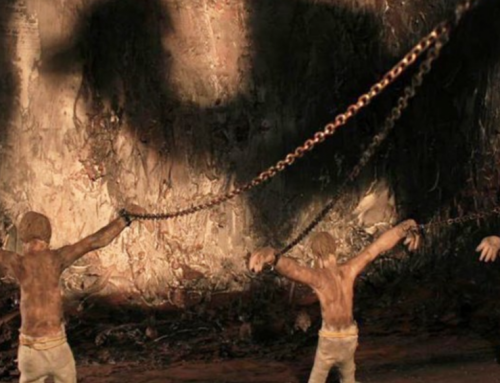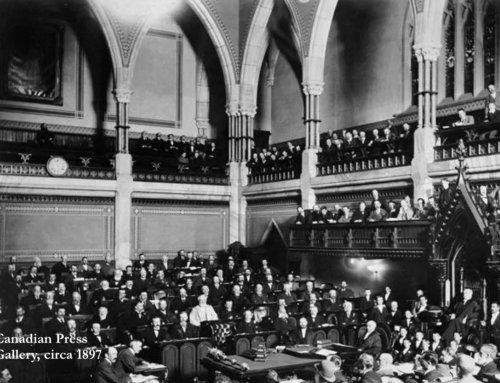Unfounded propaganda is creating a man-made “bozozone” that is denying us any chance of doing what is right.
Three things you might not know:
- More than six in 10 Americans are represented by elected officials who think that climate change is a big ‘ol liberal hoax — including leaders at the highest level, like Senate Majority Leader Mitch McConnell.[1]
- Only 24 of 13,950 peer-reviewed articles rejected climate change.[2]
- “The Earth will end only when God declares it’s time to be over. Man will not destroy this Earth. This Earth will not be destroyed by a Flood. I do believe that God’s word is infallible, unchanging, perfect.” A US politician actually said this (see below).
(4 minute read)
Are we still in the Dark Ages?
We started our journey out of the “Dark Ages” almost a 1000 years ago and about 300 years ago we began to realize the value of science and the application of the scientific method – and a wonderful method it has proven to be. It has fostered unimaginable advances over the past three centuries and furthered the well being of humankind and our industrialized world. Unfortunately, in much of the industrial sector and religious beliefdoms the scientific method is only accepted if it supports the “god-given” objective of profits or man-made interpretation of scripture. Otherwise, it is characterized as “questionable,” “flawed,” “not yet enough evidence” or “blasphemous.” It would seem that science is really only helpful when we aren’t in denial and yet, we continue to flock to denial whenever it fits our needs and beliefs – or feeds our political fundraising coffers. There’s no letting human well being get in the way of business, politics or religion.
Debunking the denial is easy!
Nowhere is this ignoring of science more prevalent than on the issue of climate change. Recently, Phil Plait wrote in Slate that geochemist and National Science Board member James Lawrence Powell wrote a post that is basically a slam-dunk of debunking. His premise was simple: If global warming isn’t real and there’s an actual scientific debate about it, that should be reflected in the scientific journals. He looked up how many peer-reviewed scientific papers were published in professional journals about global warming, and compared the ones supporting the idea that we’re heating up compared to those that don’t. What did he find? Only 24 of 13,950 peer-reviewed articles rejected climate change. Only those who benefit from climate change or are morons would ignore such a stack of evidence.
The chart above is an example of what is called a “wedge issue” – a thin, thin, empty issue that is blown up and blown about like a bunch of hot air (bullshit) by fossil-fuel funded think tanks and irresponsible media like Fox News and their lightweight, vacuous talking-heads. The article states: “Science thrives on dissenting ideas, it grows and learns from them. If there is actual evidence to support an idea, it gets published. There is no scientific controversy over this. Climate change denial is purely, 100 percent made-up political and corporate-sponsored crap. When the loudest voices are fossil-fuel funded think tanks, when they don’t publish in journals but instead write error-laden op-eds in partisan venues, when they have to manipulate the data to support their point, then what they’re doing isn’t science. It’s nonsense. And worse, it’s dangerous nonsense. Because they’re fiddling with the data while the world burn.
And there is a parade of political dunces. Rick Perry, the Governor of Texas says the science is fuzzy. And since it’s not on his list of top two things to remember, he forgets about it. And GOP representative, John Shimkus (Illinois) says we don’t need to worry about climate change because god (his god) will decide when the world shall end. No kidding. Here is what he said – actually read from the Bible and went on to say, “… therefore don’t worry about climate change.”
“The Earth will end only when God declares it’s time to be over. Man will not destroy this Earth. This Earth will not be destroyed by a Flood. I do believe that God’s word is infallible, unchanging, perfect.”
And there are more hiding in plain site in the US Congress, spewing intelligence-defying bunk: Todd Akin (R-MO); Mo Brooks (R-AL); Ralph Hall (R-TX); and Dana Rohrabacher (R-CA).Too many politicians and corporate leaders are playing the denial game in order to get re-elected or boost the stock price, both of which are good for their short-term but bad for everyone long-term.
The Center for American Progress Action Fund found that there are 182 climate deniers in the current Congress: 144 in the House and 38 in the Senate. That means more than six in 10 Americans are represented by people who think that climate change is a big ‘ol liberal hoax — including some leaders at the highest levels of government, like Senate Majority Leader Mitch “I Am Not a Scientist” McConnell and senator and presidential candidate Marco “I Am Not a Scientist” Rubio. (And those are just the members of Congress who are out-and-out deniers, so it doesn’t include the many more who kinda sorta admit that something might be going on with the climate but still don’t want to do anything about it.)
Not surprisingly, many of these same climate deniers have been handsomely rewarded by the fossil fuel industry. In total, these climate-denying congresspeople have received more than $73 million in contributions from oil, gas, and coal companies over the course of their careers. To get the specifics, check out this handy interactive map, which breaks down exactly who in each state is a climate change denier — and exactly how much cash they’ve gotten from dirty energy.[1]
I don’t know if the world is coming to an end but I do know that reasoned leadership on climate change, coming from the halls of government and most corner offices is at a dead end. And no chorus of scripture readings, denials or Amens is likely to change that any time soon.
Footnotes:
- This is an excellent article by Katie Herzog (Mar 8, 2016): http://grist.org/climate-energy/surprise-a-third-of-congress-members-are-climate-change-deniers/
- http://www.slate.com/blogs/bad_astronomy/2012/12/11/climate_change_denial_why_don_t_they_publish_scientific_papers.html?wpisrc=most_viral







My question, that I have never had answered to my satisfaction, is to what extent the climate change we see is caused by humans. There is no doubt the climate is changing (this has always gone on). There is no doubt human CO2 emissions have some effect (they have to according to physical laws). But how much of the change we see is due to that effect? And how certain can we be about the extent of those effects in the future? Whenever I read the science around these questions, I see huge margins of uncertainty. But whenever activists talk about it, they talk like there is no uncertainty, or at least no uncertainty that matters. But the margins of uncertainty in the literature range from minor effects we don’t need to worry about to massive effects that will destroy the biosphere. Ranges like this basically mean we don’t know. Which is not surprising, given the complexity of weather and the global climate.
CO2 emissions have to be bad for the climate and we should take reasonable steps to avoid them. But there is a serious disconnect between what the science is able to show and the public policy choices we are asked to accept. I don’t see a convincing case that we need to throw the global economy into a prolonged recession (something that costs lives, lots of lives) because we know disaster is immanent. And I really don’t see the case for green measures being economically beneficial – if they were, people and corporations would already be taking them voluntarily.
Too many of the policy proposals around climate change are fueled by hysteria over worst-case scenarios. The argument seems to be that the danger is so great that it justifies any cost in order to remove any possibility that the worse scenarios will happen. This kind of extremism does not constitute good risk management. The cost we are willing to accept should be relative to the probability of the event occurring, as well as the severity of the event. Climate change proponents seem to leave out that first bit too often.
Of course there is uncertainty. Science is not about certainty rather it is a process of testing hypotheses and continually moving toward answering the uncertainty. The question should not be: “Are we certain?” It should be: “If we are not certain, on what side do we want to err?” It is a question of risk. In this case, if we err on the side of over-protection of the planet the “costs” are small – microscopic – compared to the “cost” if we assume the opposite. As the article points out the scientific community is NOT debating the “denial;” therefore, we can assume that climate change is a real long-term problem – if we place any certainty in the hands of science.
A mountain of facts proves nothing nor does the stating of facts qualify as “extremism.” What is required is a well-reasoned case – you know, like in a court case – that can reach a conclusion that is “beyond reasonable doubt.” In the case of climate change the gathering, presentation and cross examination of evidence is a long, arduous and slow process and we are only somewhere in the middle of it. No conclusions can or should be drawn from what we know at this point. But – and it is a big but – there is already enough evidence to raise serious questions. And there have been enough leaders in science, government and business who agree that the evidence is strong enough to talk about what action needs to be taken.
The flaw is that the governments and businesses are not walking the talk. It would seem that “they” are prepared to take the risk that the problem is one of low severity and/or probability. The reality is that “they” do not have to do much because it is a long-term question that cannot be answered and they cannot be held responsible for it during their term of office – or their life time. We still run our businesses and nations on short-term thinking and short-term returns so it is highly unlikely that we will make decisions based on the scientific method, which is a long process of experimentation-learning, experimentation-learning and then knowing enough to make the best decision.
We humans do not think and act according to the long-term, never have (some say that’s why we’re in the economic, environmental, social mess we are in). Western civilization has been built on experimentation – the long historic arc of trial and error and short-term thinking – and we have made a lot of errors. And that is not likely to change no matter how much extremism or head-in-the-sand thinking. In the end, the ecosystem will determine if our assessment in 2012 was too extreme or too narrow.